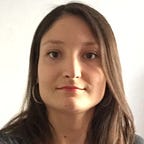Interviewing to become an Analyst at the BBC
The data and analytics team at the BBC improve our products and services using audience analysis, data-led design and experimentation. Our data specialists work across the BBC, interrogating customer information, providing actionable insights and creating data tools for stakeholders to use. We run A/B tests, build models to answer complex questions and develop recommendation systems to improve the audience experience.
While everyone’s day-to-day tasks differ, we all have to work with large datasets. Our hiring process has evolved to reflect this fact, and here we share an overview of the approach to help candidates understand what’s expected of them when they apply for a data role at the BBC.
Why we do skill-based interviews
In the last few years there’s been significant growth in analytics and data disciplines at the BBC, and in our search for the brightest talent we want to make sure that recruitment is consistent, fair and transparent. A skill-based interview brings all that.
We’re excited to hear about your previous experience, but more important than that is actually seeing what you could bring to the team. This is why during the hiring process we share a sample of BBC data and give you a task related to that data.
This assessment helps us to understand both your technical abilities and how you use that knowledge to answer business-focused questions, mirroring what our analysts do on a day-to-day basis.
What the process looks like
If you are invited to interview we will usually send you a task before the meeting. You will deliver your response to this either as a standalone submission or as part of a longer competency interview.
The instructions you receive will vary based on the type of role you are going for.
For example, someone who will spend most of their time working in SQL will be told to complete the task in SQL, whereas someone whose role will have a looser technical focus has licence to use a wider set of languages. (Python and R, for example.)
Someone who’s going for a position where the main purpose of the role is building data products will be assessed on how good their code is, while someone applying for a role embedded in editorial, we’re more interested in the insights drawn from the data and how they’re communicated.
The time frame you’re given to complete the task varies. For a simple data join and manipulation exercise it might be 24 or 48 hours. For something more in-depth, where, for example, you need to work with the raw data to construct a compelling insight presentation, you may have a week. The deadline deliberately mimics what would happen if you did eventually join the BBC.
In the interview itself you will talk through and explain what you’ve done and the decisions you’ve made and why.
The data
Being given a new set of data can be both exciting and confusing. Following the task objectives and defining each step of the process is a good starting point. Think about what the dataset represents and what each field means.
If you are working with multiple datasets think about the best way to join them together. When summarising the data be careful not to strip out any important information.
You’re working with actual BBC data, and as these are real-life datasets they are affected by anything that happened when the sample was generated. The datasets we use change over time to keep them fresh.
What we’re looking for
Show us that you understand our data with powerful storytelling and insights beyond top line numbers. We love to see our data visualised! Whatever tool you choose for your presentation show us that the data can speak. Make sure you emphasise the most important information and show it in context. Explain to us any trends and anomalies you spotted. Don’t be afraid to tell us that the data was messy or ambiguous. In real-life, data often is. Prove to us that you can find a workaround and get the value out of it.
We know that some candidates will have had little experience of working in data tools and technologies, and that’s okay. In the majority of cases the tasks themselves aren’t difficult, and with a little learning and perseverance you should be able to get there. As much as anything we’re looking at someone’s tenacity, problem-solving ability and logical reasoning. We’re also very interested in understanding your approach and way of working.
It’s part of the job that you won’t be repeating the same thing again and again. You will need to solve problems using your own initiative, whether that’s through trial and error, desk research (thank you, Stack Overflow) or finding someone in the organisation who’s answered that question before.
It’s a two-way process
The task is not only for us to see how well you can work with data, but it also gives you a taste of what you’d be doing if you joined us. Along with the questions you ask us during the interview, use this opportunity to experience the kind of work you’d be doing to help you decide if the BBC is the right next step for your career.
Anything else?
Good luck, and enjoy!
Not actually interviewing for a role at the BBC but we’ve piqued your interest? Well, well. Click here to find out more.
